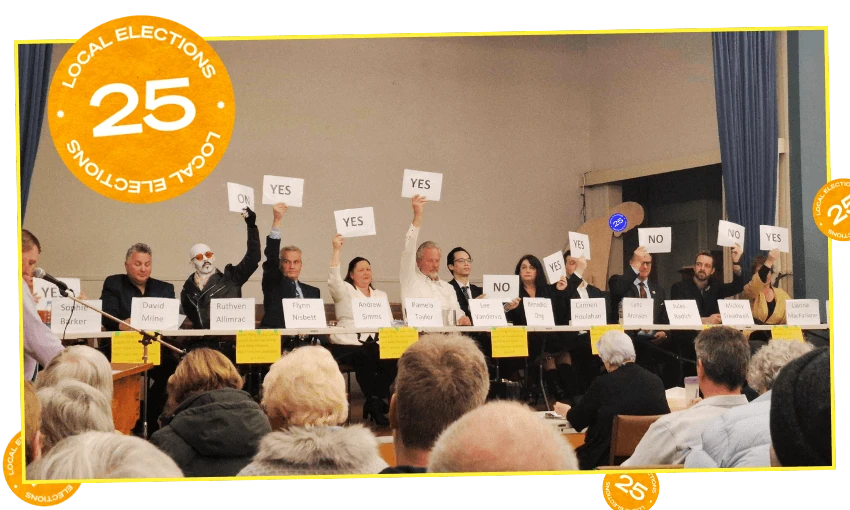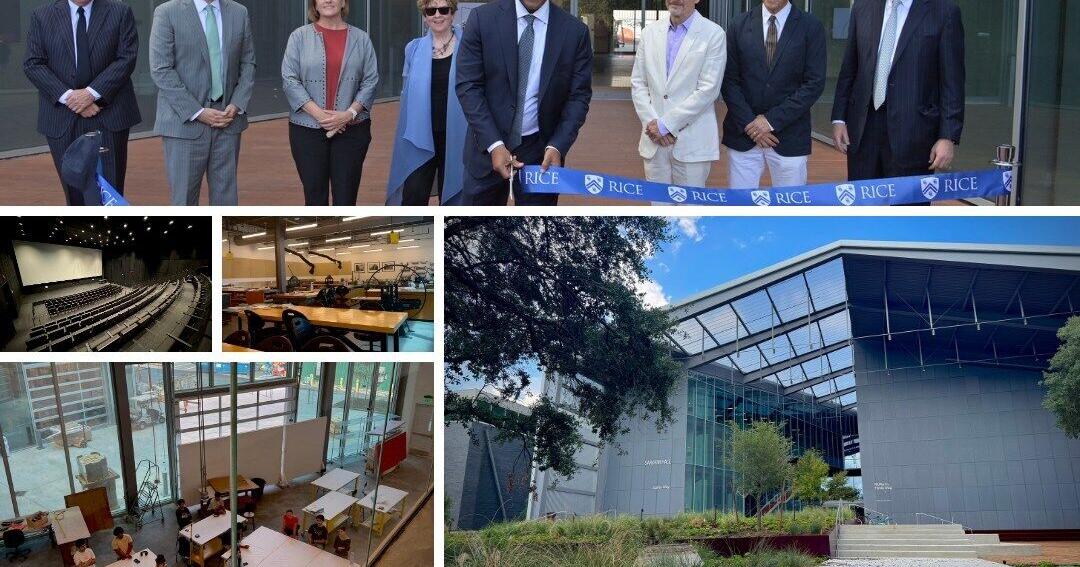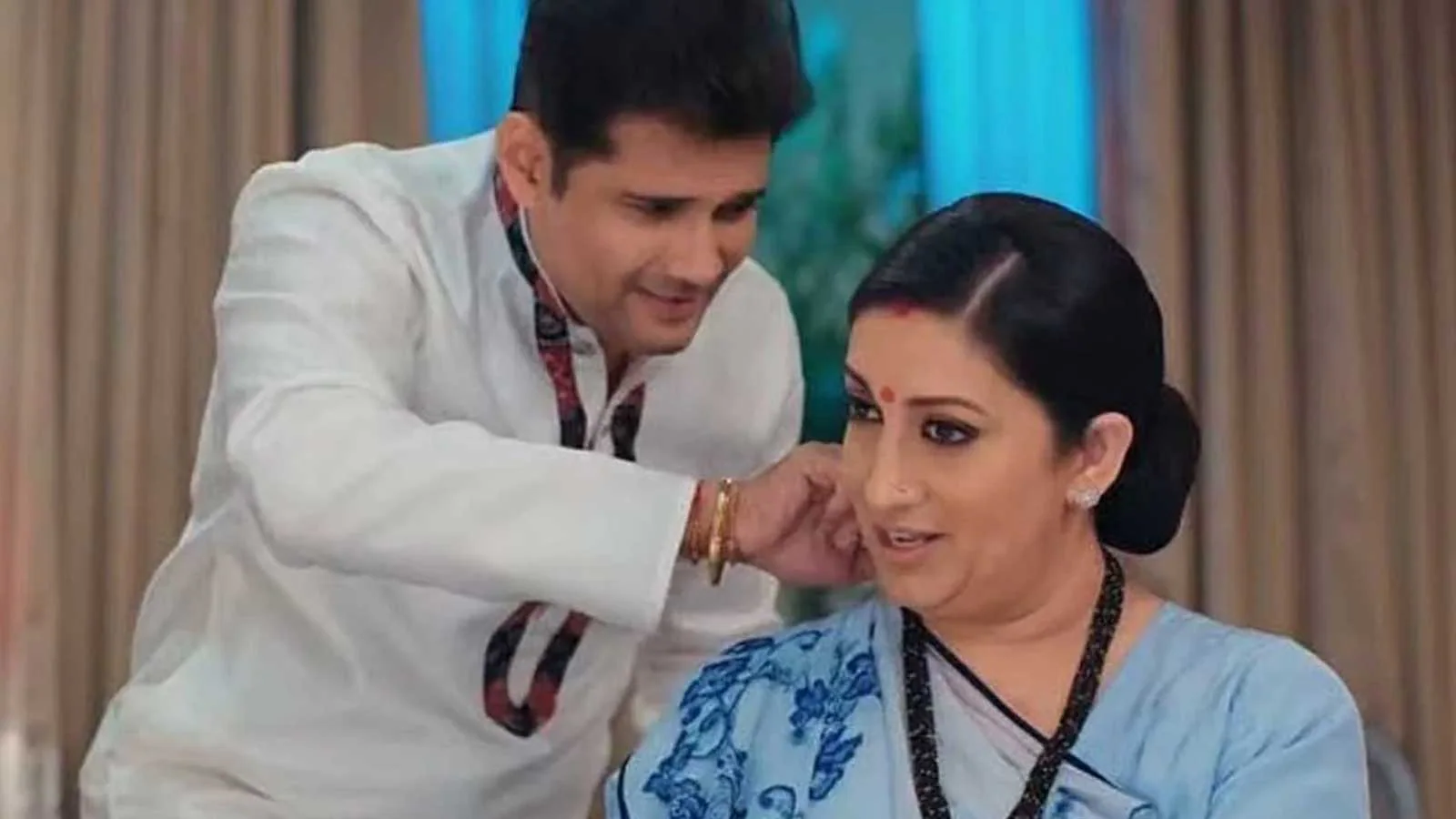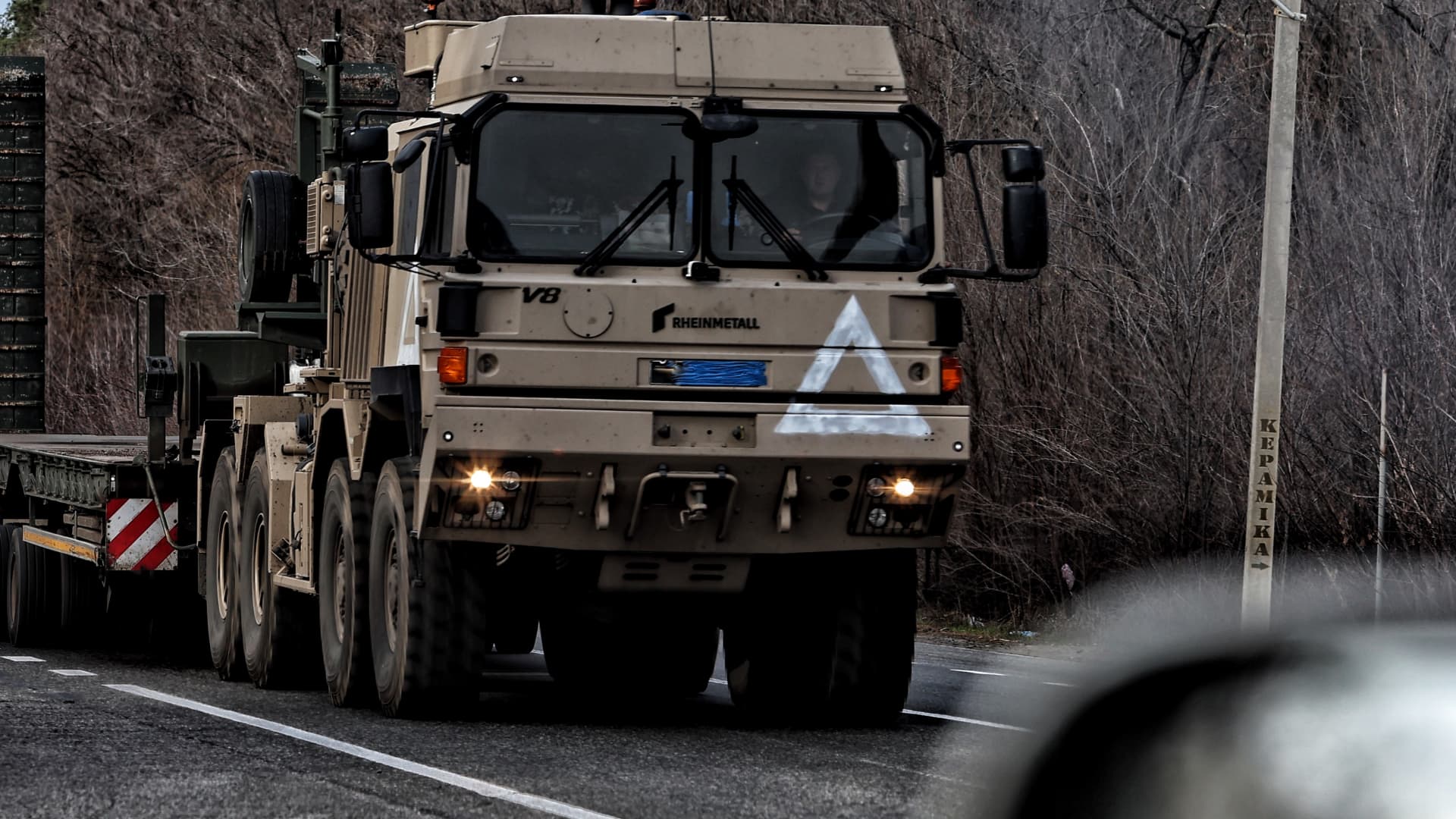By Tara Ward
Copyright thespinoff

Tara Ward attends the final mayoral debate in Dunedin to find out what a vampire would do for the city.
There was standing room only in First Church’s Burns Hall last night for the final event in the Dunedin Area Citizens Association’s series of local election debates. A mostly grey-haired crowd in puffer jackets and woollen hats filled the room long before the debate began, leaving latecomers to sit on the floor or lean at the back of the room. At the front of the hall, framed by a set of long, blue curtains, sat 12 of the record-breaking 16 candidates vying for mayor, including the incumbent leader, four current councillors, and one extremely pale vampire.
Just a normal Dunedin mayoral debate, then. The festivities began with a three-minute introduction from each candidate, starting with current mayor Jules Radich, who used the word “practical” several times, adding that he had “delivered for Dunedin already”. Radich was followed by the Greens’ Mickey Treadwell, who wants to strengthen housing and infrastructure, so that “the next time the government pulls out of here, we have a city that we can rely on”.
Reducing council debt was a big concern of the night. Pamela Taylor should have brought a pair of snips with her, given her plan is to cut services and jobs to keep rates down, while car salesman and Future Dunedin ticket leader Andrew Simms pledged to stop the Smooth Hill landfill project. He vowed that if successful as mayor, he would donate part of his salary and car allowance to fund a dedicated homeless outreach service in Dunedin. “Please vote for real change,” he said.
If you want change, a vampire ought to do it. “I’m your friendly neighbourhood vampire,” Ruthven Allimrac began, fangs at the ready, as he mentioned the climate crisis, cost of living and the need for a living wage. “Please join me in a stronger, more empathetic Ōtepoti,” the bloodsucker said. Former international banker Benedict Ong struggled to keep the microphone anywhere near his mouth, but said he’d like to expand the airport (“I have been to dozens and dozens of airports”). He ignored the bells to stop talking, and held up a statutory declaration that he wanted to read. “No,” came cries from the audience.
Lync Aronson asked when rate increases would stop, before answering his own question (spoiler: it’s October 11, election day). Former journalist and second-term councillor Carmen Houlahan said she knows how to ask hard questions, and her experience in raising teenagers means she can deal with banter around the council table. Her council colleague Sophie Barker advocated for a “bold change in leadership and vision”, and cited her experience and ability to find common ground. “It’s my intention to run a much tighter ship,” she said, possibly borrowing a line from council candidate Captain Hugh O’Neill.
David Milne began by thanking the people who voted for him the last time he stood for mayor in 2022. “That was really great,” said the honey and skincare exporter, who came seventh in a field of 11, garnering 1,266 votes. Lee Vandervis was the most experienced politician on stage, having spent 18 years on council (this is his eighth attempt at mayor). He spoke about why he initially ran for council, after his light and sound business could not get contracts through the DCC. “In many respects, it was jobs for the boys,” he claimed, adding that he fought hard to get better value. He also told a story about how he used to walk his dog at night, using a torch to check the maintenance of the local mud traps.
By the time the microphone got to Lianna Macfarlane at the end of the table, The Vampire had unleashed a fang-filled yawn. “We need to get real”, Macfarlane said, which means stopping wasteful spending, saying no to Smooth Hill and capping rates.
After the introductions were over, we moved to a round of questions where each candidate was instructed to answer by raising a card with “yes” or “no” written on it. Simple? [Holds up card] NO. Simms nabbed an extra card and voted with both arms, The Vampire raised his “NO” sign as “ON”, and Houlahan struggled to put her sign in the air. In readiness for questions from the floor, a volunteer slowly positioned some hand-held microphones around the room. “I’d be quicker with a hip replacement and a knee replacement,” he explained. “Wouldn’t we all,” replied the event MC.
After questions about the living wage and an independent financial audit of the city council, we got to the meaty issue of Dunedin’s local election: the new Smooth Hill landfill site. “It’s bonkers, it needs to be reviewed and put out to full consultation,” Simms said, to hearty applause. Barker argued that delays to Smooth Hill would cost more money. “Infrastructure is expensive,” she said, also receiving applause. Macfarlane claimed Smooth Hill would need a “full-time shooter” to avoid bird strike at the nearby Dunedin Airport. “There will be no seagulls at Smooth Hill,” Radich promised, earning the biggest laugh of the night.
After 30 minutes of dump debate (“why don’t you fill the stadium up with rubbish?” someone suggested), the audience was getting impatient. “Can we move on?” a resident begged, but Allimrac hadn’t had his say yet. “Let the vampire speak,” one woman urged. After the topic of Smooth Hill was put in the bin, questions followed about increasing water rates, student bars, Dunedin stadium, council bankruptcy, council CEO pay and how to solve homelessness. Several candidates answered “no” to the question of whether we’re experiencing a climate emergency. Some audience members started to leave, and while it might have been the presence of the vampire, I too could feel my soul slowly departing the building.
Not long after one voter asked whether the council should facilitate more positive media coverage for the city (“Every time I reluctantly turn on mainstream media, it’s Christchurch, Christchurch, Christchurch”), the night came to a close. There was time for one final question, which came from a resident who commended the council for bringing the residents of Dunedin together to protest the changes to Dunedin hospital. They asked if the council was prepared to reinvigorate the community to put pressure on the government until we get the hospital we want. Each of the mayoral candidates grabbed their signs, raised them in the air and said “YES”. A unanimous decision, vampire and all.



